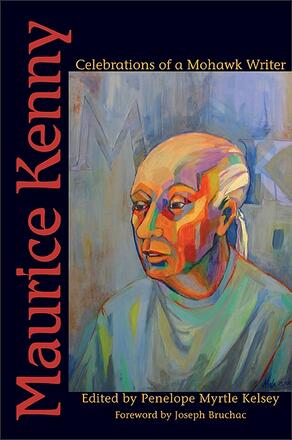
Maurice Kenny
Celebrations of a Mohawk Writer
Alternative formats available from:
Explores the work of Maurice Kenny, a pivotal figure in American Indian literature from the 1950s to the present.
Description
Winner of the 2012 Best Critical Book Award presented by Wordcraft Circle of Native Writers and Storytellers Association
This collection explores the broad range of works by Mohawk writer Maurice Kenny (1929–), a pivotal figure in American Indian literature from the 1950s to the present. Born in Cape Vincent, New York and the author of dozens of books of poetry, fiction, and essays, Kenny portrays the unique experience of Native New York and tells its history with poetic figures who live and breathe in the present. Perhaps his best known work is Tekonwatonti/Molly Brant: Poems of War.
Kenny's works have received various accolades and awards. He was recognized by the Wordcraft Circle of Native Writers and Storytellers with the Elder Achievement Award, and two of his collections of poems, Blackrobe and Between Two Rivers, were nominated for the Pulitzer Prize. Kenny has also been honored with the American Book Award for The Mama Poems. His works have been recognized by National Public Radio, and have drawn the attention of famous figures such as Allen Ginsberg, Jerome Rothenberg, and Carolyn Forché.
Maurice Kenny: Celebrations of a Mohawk Writer serves as a comprehensive introduction to Kenny's body of work for readers who may be unfamiliar with his writing. Written by prominent scholars in American Indian literature, the book is divided into two parts: the first is devoted to musings on Kenny's influence, and the second to traditional critical essays using historical, nationalist, Two Spirit, creative, memoir, and tribal-theoretical approaches.
Penelope Myrtle Kelsey, of Seneca descent, is Associate Professor of English and Ethnic Studies at the University of Colorado at Boulder. She is the author of Tribal Theory in Native American Literature: Dakota and Haudenosaunee Writing and Indigenous Worldviews.
Reviews
"With this book, Kelsey makes a valuable contribution to several fields of literary studies, including environmental, LGBTQ, and, of course, contemporary American Indian. The book is important especially because Kenny (b. 1929) has been the subject of surprisingly little scholarship … The ten essays coalesce into a rich portrait of a poetry that explores complex overlapping identity issues in late-20th-century America and the roots of these issues as far back as the early contact/conflict between Native Americans and British colonialists." — CHOICE
"The essays in this collection bear witness to [Kenny's] ability to inspire others, his generosity of spirit, and the importance of his body of work as a significant part of the American literary canon." — from the Foreword by Joseph Bruchac
"This is a much-needed celebration of a seminal but understudied figure in modern American Indian/Iroquois literature." — Donald A. Grinde Jr., editor of Native Americans